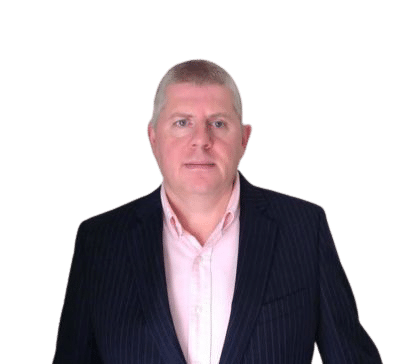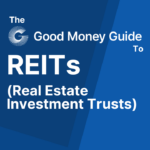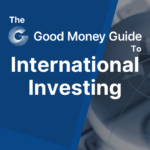As part of this year’s Good Money Week, Hargreaves Lansdown, one of the UKs largest stockbrokers and investment platforms, has chosen to look at investing in the Emerging markets and the risks and opportunities within them with an emphasis on ESG.
The initiative which goes on until October 6th, is designed to bring different sectors of the financial services industry together, to consider how they can help the public make better investment choices.
What are the Emerging Markets?
Emerging markets are developing economies and markets around the world. They share some common characteristics with their more developed counterparts.
However, they may lack key infrastructure, legislation or systems. These economies can often be “fast-growing” but they may also be less stable economically, and politically, than economies in the developed world.
The population of the Emerging markets is around 4.30 billion people, who have a median age of 34 years and are thus far larger, and far younger than the populations of the Developed markets.
One-third of the world’s population now lives in cities within the Emerging markets.
The MSCI EM index contains equities from 24 Emerging markets, the index encompasses some 85.0% of the free float-adjusted market cap in each of these countries.
According to Dominic Rowles, Lead ESG analyst at Hargreaves Lansdown, countries struggling with environmental degradation, social inequality, or poor governance can create an unstable investment landscape.
This type of instability can ultimately lead to civil unrest, and economic hardships, such as high unemployment, interest rates, inflation, and a weak currency. The types of economic downturns that negatively impact investor returns.
How do Developed and Emerging Markets differ in terms of environmental risks?
Developed markets are likely to have the resources to invest in sustainable infrastructure and clean energy and to enforce stringent environmental regulations. They are better able to adapt their society and infrastructure to environmental changes over time.
However, Emerging markets can be more reliant on climate-sensitive industries, such as agriculture, and can therefore be more vulnerable to climate-related events.
They are also likely to be less well-equipped to handle environmental disasters or to prevent pollution, and other forms of environmental damage.
The Developed markets often have robust welfare systems, better healthcare and education systems and lower levels of social tension.
Emerging markets on the other hand often face high levels of poverty and inequality, have weaker healthcare and education systems, and are more vulnerable to social crises and discontent.
In Developed markets, we would expect to find established institutions and regulatory frameworks,
helping to ensure transparency and accountability. Which in turn helps to create a stable, predictable business environment.
However, Emerging markets are often characterised by weak institutions, and may struggle with corruption. They face heightened political and economic instability, which can combine to create an unpredictable business environment.
Despite the risks Emerging markets offer several advantages.
They are an engine of global growth, and are home to some of the most dynamic economies; They can often be centres for innovation in areas such as technology and manufacturing.
Emerging markets often have low-cost economies and large workforces, and they can provide investors with exposure to diverse industries, that range from IT services to e-commerce.
Hargreaves Lansdown highlights two fund choices for its clients:
For those who don’t feel comfortable with Emerging market risks. It suggests the Legal & General Future World ESG Developed Index, which invests in 1400 companies across the developed world, including the United States, Japan, the UK and Europe. The fund’s investments are weighted by various ESG criteria and it avoids investing in areas such as tobacco and thermal coal.
For those who are happy to take on EM market risk, Hargreaves suggests the Legal & General Future World ESG Emerging Markets Index.
The fund follows a similar investment process to its developed index counterpart tracks. However, the EM fund tracks the Solactive L&G Enhanced ESG Emerging Markets index. Which has a focus on regions such as Taiwan, China, India, South Korea and South Africa. Investing in over 1,700 companies, across industries like financial services, technology and pharmaceuticals.
For context, the MSCI Emerging market’s index has returned just over +15.0% year to date and stands on a forward PE ratio of 11.75 times.
That compares to the MSCI World index, which is up by 16.72% and on a forward PE ratio of 18.77 times earnings. Data from MSCI, as of the end of August 2024.

With over 35 years of finance experience, Darren is a highly respected and knowledgeable industry expert. With an extensive career covering trading, sales, analytics and research, he has a vast knowledge covering every aspect of the financial markets.
During his career, Darren has acted for and advised major hedge funds and investment banks such as GLG, Thames River, Ruby Capital and CQS, Dresdner Kleinwort and HSBC.
In addition to the financial analysis and commentary he provides as an editor at GoodMoneyGuide.com, his work has been featured in publications including Fool.co.uk.
As well as extensive experience of writing financial commentary, he previously worked as a Market Research & Client Relationships Manager at Admiral Markets UK Ltd, before providing expert insights as a market analyst at Pepperstone.
Darren is an expert in areas like currency, CFDs, equities and derivatives and has authored over 260 guides on GoodMoneyGuide.com.
He has an aptitude for explaining trading concepts in a way that newcomers can understand, such as this guide to day trading Forex at Pepperstone.com
Darren has done interviews and analysis for companies like Queso, including an interview on technical trading levels.
A well known authority in the industry, he has provided interviews on Bloomberg (UK), CNBC (UK) Reuters (UK), Tiptv (UK), BNN (Canada) and Asharq Bloomberg Arabia.
To contact Darren, please see his Invesdaq profile.



